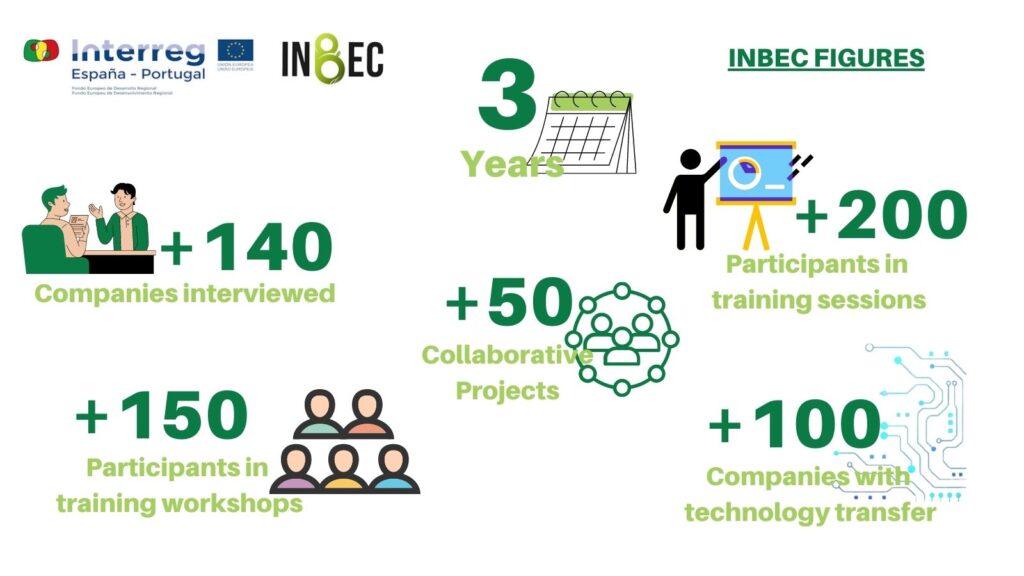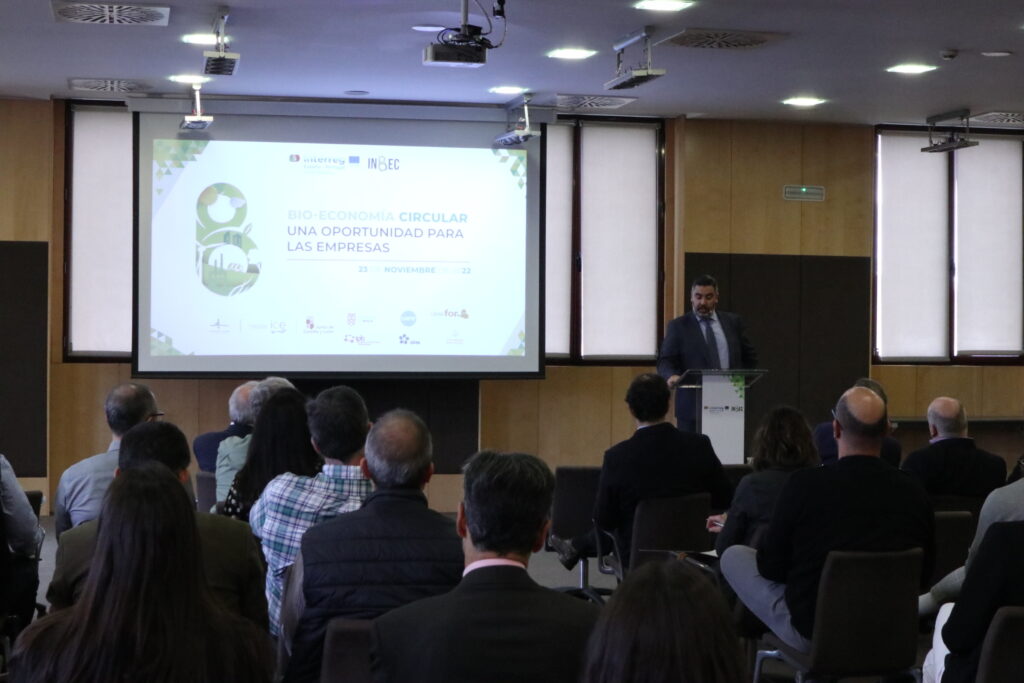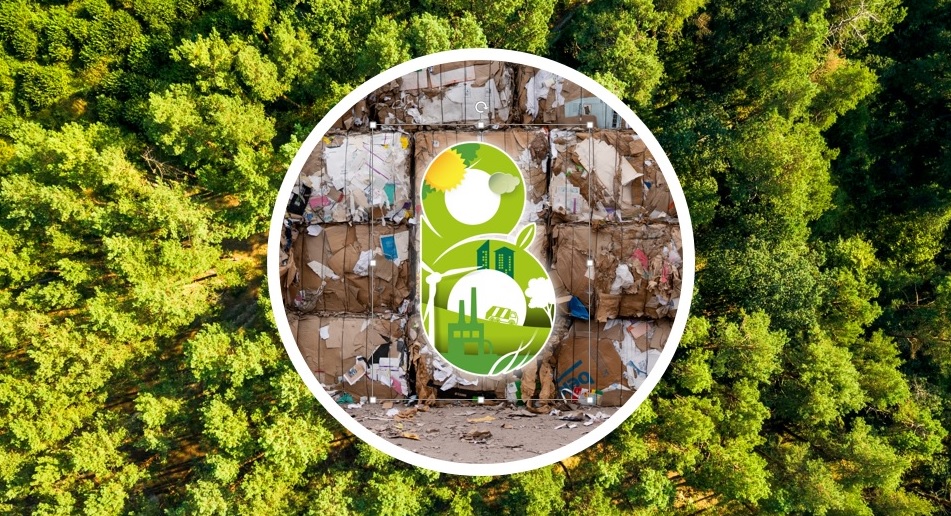The global challenges we face in achieving sustainable resource management, while delivering economic development, require the close collaboration of all actors in a chain consisting of industrial (business), government and research sectors. In this context, Circular Economy offers solutions to change and enhance the traditional Linear Economy and the development of a Circular Bioeconomy is a crucial opportunity for sustainable growth at regional, national and international level, through the contribution of all sectors involved. The Bioeconomy is defined as a set of activities that encompasses all sectors and systems that are based on biological resources (animals, plants, macro-organisms, and the biomass derived from them, including organic by-products).
The Circular Bioeconomy requires a boost from the private sector which, combined with a brave and decisive strategy from public administrations, provides a regulatory framework that generates social consensus, active participation of the value chain, drives business investments and reinforces legal certainty; all with the dual objective of creating stable and quality employment and advancing in the ecological transition of our economy. This is an opportunity that cannot be missed. According to estimates by the European Commission, for example, if all the current regulations were applied in the specific case of waste, more than 400,000 jobs would be created in the European Union, of which 52,000 would be in Spain.
Some of the projects proposed in this area are linked to the reuse of packaging, the development of renewable gases, the promotion of domestic energy self-consumption or the incentive of industrial recycling in sectors such as the automotive industry. All of these projects are promoted with the clear intention of contributing to the transformation of the production system, raising its sustainability standards and taking advantage of all the economic opportunities offered by the Circular Economy as a whole and the Circular Bioeconomy in particular.
In this sense, INBEC project is a Circular Bioeconomy project whose objective has been to promote the creation of new industries and economic activities, as well as the diversification of productive activities through the transformation of biological resources and the development of new bioproducts and services. This project has sought to maximise the potential of this area in Castille and Leon and Portugal, promoting the presence in new markets and the demand of this type of reosurces and products.

To this end, INBEC has encouraged and promoted a sustainable economy by increasing busines competitiveness in all sectors identifying existing resources in the regional sector of the Bioeconomy and Circular Economy, and thus promoting the development of R&D&I projects and cross-border cooperation, the creation of new industries and economic activities based on the transformation of biological resources and maximising the potential of the Bioeconomy.
Among the actions that have been carried out throughout the project, the following should be highlighted:
- Characterisation and identification studies of companies, resources and activities by areas with the aim of finding out about the industrial base and endogenous resources present in areas of action. CARTIF has contacted and visited more than 25 companies in Valladolid and Zamora.
- Nine action plans, one for each target area, have been drawn up to define the potential of possible actions to be
- implemented in the field of bioeconomy and circular economy.
- In terms of awareness-raising workshops, CARTIF has actively participated in the 16 workshops carried out in the project with the objective of informing and debating with SMEs and the self-employed on the principles of the bioeconomy and the benefits it generates for companies and society.

- CARTIF has organized nine training and innovation workshops, about innovative solutions in matter of organization and management of productive processes, solutions for the implementation of new product design, containers and packaging.
- Individual diagnostics and implementation plans,dealing with the degree of innovation of companies, self-employed and entrepeneurs in terms of organisation and process management. CARTIF has carried out more than 25 personalised diagnoses in Spain (Valladolid, Salamanca and Avila) and Portugal (Beiras e Serra da Estrela, Coimbra and Douro) with the actions and roadmaps to be followed to implement the proposed innovations.
- As for the project bank, initiatives have been collected to generate new technologies or economic activities in the field of Bioeconomy. CARTIF has carried out more than 20 tutorials in the areas of Portugal (Terra Tràs Os Montes, Beiras, Coimbra, Serra da Estrela and Douro) and has provided technical support in the implementation of collaborative R&D&IMprojects and/or projects that have generated new activities in the field of Bioeconomy.
- Finally, with regard to the promotion of demand and market development, the INBEC project has drawn up a digitalisation itinerary for companies, freelancers and entrepeneurs working in the Bioeconomy and Circular Economy sector. To this end, digitisation workshops, diagnoses and implementation plans have been carried out, focused on bringing closer and facilitating the incorporation of ICT solutions as tools for the substantial improvement of the competitiveness of companies, freelancers and entrepeneurs. On the other hand, by-products and secondary materials derived form the Bioindustry have been identified and puto to good use with the aim of exptending the value chain of biotechnological materials and products. A Joint Comercialisation and Marketing Plan for bioproducts and by-products present in each study area has also been carried out, with the aim of becoming more competitive through a joint comercialisation strategy with the collaboration of different agents and companies. To conclude this activity and the project, CARTIF has organised an Internatinal Forum for the exhibition and exchange of bioproducts, bioprocesses, application technologies and knowledge,etc. to share all the results of the project and in this way value and take advantage of the potential of the agents participating in it and promote the development of this new economy among society.

As a final conclusion, after the ,completion of this three-year project, more than 140 interviews with companies, entrepeneurs, freelancers and relevant agents have been carried out duringthe course of the project. On the other hand, more than 200 participants have been trained in training days, more than 150 participants in training workshops in the field of Bioeconomy and Circular Economy and technology transfer has been facilitated to more than 100 companies, advising and tutoring them to incorporate innovations and improvements in their production processess and in the design of their products/services. Likewise, a study of the best initiatives in the field of Bioeconomy and Circular Economy has been carried out (more specifically 20 detailed initiatives), technical support and tutoring has been given to more than 50 companies in collaboration with research organisations and/or technology centres for the implementation of collaborative R&D&I projects and/or projects that have generated new activities in the field of Bioeconomy. More than 100 people have been trained in the incorporation of ICTs focused on marketing and e-commerce, the degree of digital maturity of the companies has been assessed and a personalised plan has been drawn up to implement the technologies identified, an analysis of bio-products and bio-processes that could be incorporated into the value chain of the entities in order to promote their competitiveness (in the areas of action) has been carried out and a joint commercialisation and marketing plan for bio-products and by-products present in each study area has been drawn up with the aim of making the companies more competitive through this joint commercialisation strategy. Finally, through the organisation of the International Forum and by means of different working groups and with the institutional presence of relevant international entities, the potential of all the participating agents has been valued and exploited, thus promoting the development of this new economy among society.

INBEC project, in its beginnings, coincided with the health situation by COVID-19, a situation that affected the execution of the tasks. However, throughout the project we have had the opportunity to bring together a large working team (Instituto para la Competitividad Empresarial de la Junta de Castilla y León; Universidad de Salamanca; Diputación de Ávila; Fundación CESEFOR; Fundación Patrimonio Cultural de la Junta de Castilla y León; Fundación CARTIF; Instituto Politécnico de Bragança e Instituto Pedro Nunes) to evaluate the progress of the project, share all the information collected, as well as the problems encountered throughout its implementation to achieve an undoubted success in its execution.
INBEC project with file 0627_INBEC_6_E has been co-financied by the European Regional Development Fund ERDF through the INTERREG V-A Spain-Portugal (POCTEP) 2014-2020.


